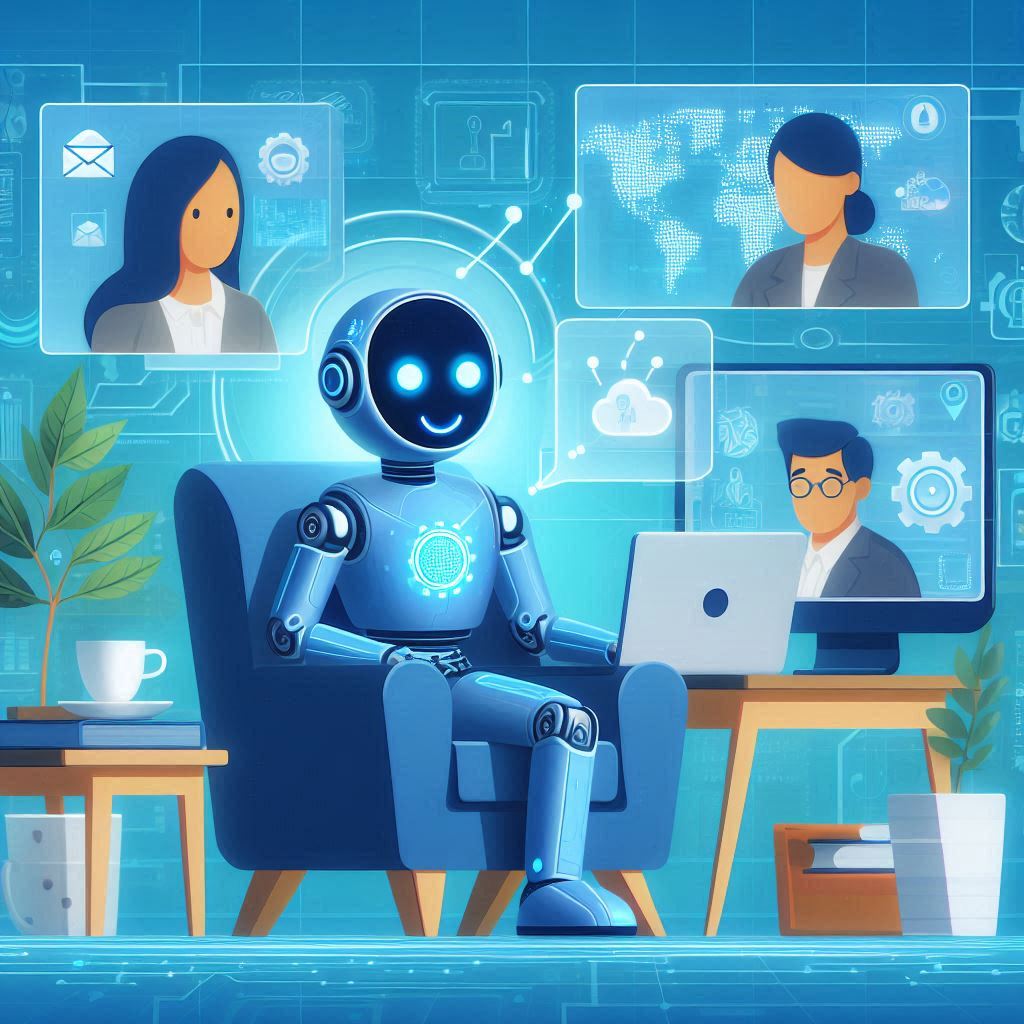The shift to remote work has been one of the most significant changes in the modern workplace. As organizations increasingly embrace virtual teams, Artificial Intelligence (AI) is playing a pivotal role in enhancing productivity, improving collaboration, and streamlining communication in remote work environments. AI is not only automating tasks but also enabling smarter decision-making and transforming how employees interact with each other in a virtual world. Here’s how AI is shaping the future of remote work and virtual collaboration.
1. Enhancing Communication and Collaboration
AI-powered tools are revolutionizing the way remote teams communicate. Chatbots, voice assistants, and AI-driven messaging platforms can help facilitate smoother communication by answering queries, scheduling meetings, and even offering real-time language translation. These tools remove barriers to collaboration, making it easier for teams across different regions and time zones to stay connected.
2. Automating Repetitive Tasks
Remote workers often juggle multiple tasks, and time management can become a challenge. AI helps by automating routine tasks like data entry, report generation, and email management. By freeing up employees from repetitive tasks, AI enables them to focus on more strategic, value-added activities, improving overall productivity and efficiency in a remote setting.
3. AI-Powered Project Management
Managing projects remotely can be challenging, especially with distributed teams. AI-powered project management tools can analyze team performance, allocate resources efficiently, and predict project timelines. These tools also help in identifying bottlenecks or potential risks early, allowing managers to take proactive steps to keep projects on track and ensure timely delivery.
4. Personalized Workflows and Virtual Assistance
AI helps create personalized workflows for remote employees, adapting to individual work styles and preferences. Virtual assistants powered by AI can provide reminders, track goals, and suggest improvements, helping employees stay organized and focused. These personalized touchpoints enhance collaboration and enable a more tailored, efficient work environment for each team member.
5. Data-Driven Decision Making
In a remote work environment, data is crucial to making informed decisions. AI analyzes large volumes of data to provide insights that help teams make better decisions. From analyzing team performance metrics to understanding client needs, AI supports data-driven strategies that are essential for success in a remote workforce.

